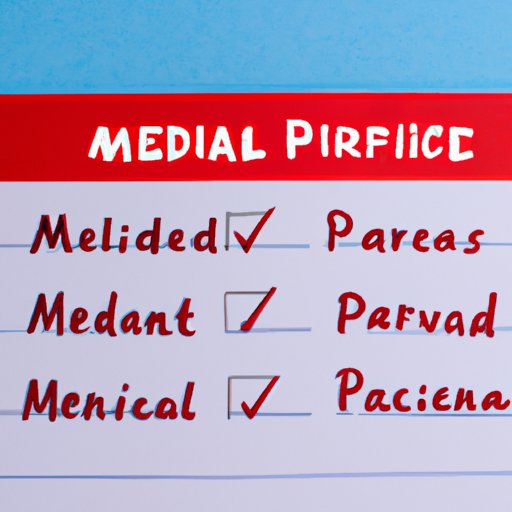
When Can You Sign Up for Medicare?
Medicare is a federal health insurance program that provides coverage for people who are 65 or older, as well as those who have certain medical conditions. It is important to enroll in Medicare on time to avoid delays in coverage and penalties. In this article, we will explore the different Medicare enrollment periods and explain how to sign up for Medicare.
5 Key Sign-up Deadlines for Medicare: Don’t Miss Out on Coverage!
There are five important sign-up deadlines for Medicare that you should be aware of: the Initial Enrollment Period (IEP), General Enrollment Period (GEP), Special Enrollment Period (SEP), Annual Enrollment Period (AEP), and Open Enrollment Period (OEP). It is important to meet these deadlines to avoid gaps in coverage and penalties. The Initial Enrollment Period is the first time you can sign up for Medicare. It lasts for 7 months, beginning three months before the month of your 65th birthday and lasting through the three months after. The General Enrollment Period occurs each year from January 1 to March 31, and is for those who didn’t sign up during their initial enrollment period. The Special Enrollment Period is a time when people can sign up for Medicare outside of the other enrollment periods if they meet certain criteria. The Annual Enrollment Period occurs from October 15 to December 7 each year and is for those who need to make changes to their coverage. The Open Enrollment Period occurs from January 1 to March 31 each year and is for those who want to switch from Medicare Advantage to Original Medicare or make other changes.
Turning 65? Here’s What You Need to Know About Medicare Enrollment
If you are turning 65, you will be eligible to enroll in Medicare. You can enroll in Medicare online, by mail, by phone, or in person at a Social Security office. You will need to enroll in Parts A and B, which cover hospital and medical expenses. You may also want to consider enrolling in Part D, which covers prescription drugs. Medicare Advantage plans, also known as Part C, are an alternative to Original Medicare and may offer additional benefits such as vision and dental coverage.
Understanding the Different Medicare Enrollment Periods
It is important to understand the different enrollment periods for Medicare to avoid penalties and delays in coverage. If you miss your Initial Enrollment Period, you may have to wait until the next General Enrollment Period to enroll, which can result in a penalty. The Special Enrollment Period allows people to enroll outside of the other enrollment periods if they experience certain life events, such as moving or losing employer-based coverage.
How to Sign Up for Medicare: A Step-by-Step Guide
Signing up for Medicare may seem daunting, but it is a fairly simple process. You can enroll in Medicare online by visiting the Social Security website and selecting “Apply for Medicare Only.” You can also enroll by phone or by visiting a Social Security office. Before enrolling, it is important to have your personal information, such as your Social Security number, available.
Top Mistakes to Avoid When Signing Up for Medicare
When enrolling in Medicare, there are several common mistakes that you should avoid. One mistake is missing your Initial Enrollment Period, which can result in a penalty. Another mistake is failing to enroll in the appropriate parts of Medicare, such as Part D for prescription drug coverage. It is also important to review your Medicare plan each year during the Annual Enrollment Period to make sure it still meets your needs.
Why It’s Important to Enroll in Medicare on Time: Exploring the Consequences of Delaying Enrollment
Delaying enrollment in Medicare can have negative consequences, such as gaps in coverage and penalties. For example, if you miss your Initial Enrollment Period and want to enroll later, you may have to pay a penalty for Part B coverage. Delaying enrollment in Part D can also result in a penalty, and you may have to pay more for prescription drugs if you don’t have coverage.
Conclusion
Enrolling in Medicare on time is crucial to avoid gaps in coverage and penalties. Knowing the different enrollment periods and understanding the enrollment process can make the process easier. By avoiding common mistakes and enrolling on time, you can ensure that you have the coverage you need.




